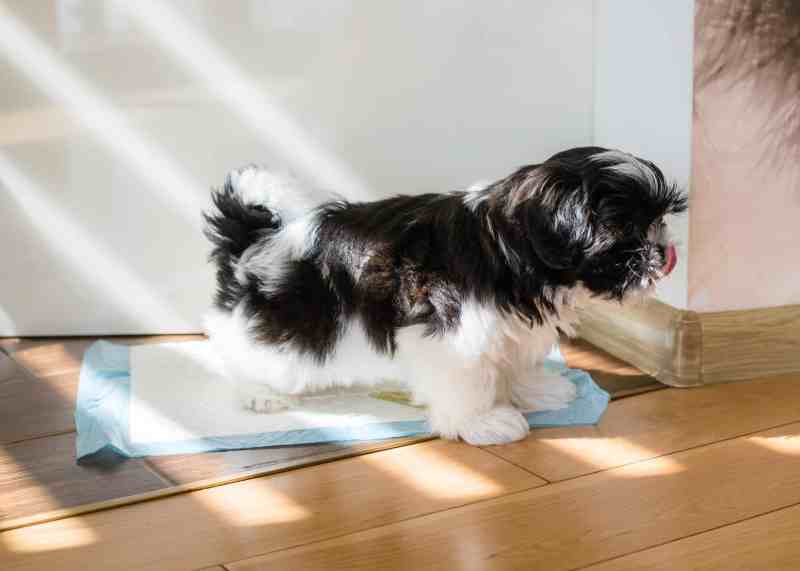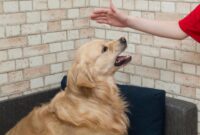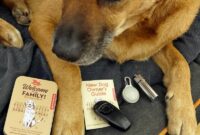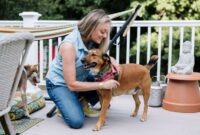Puppy House Training Guide – Bringing home a new puppy is an exciting time! But it can quickly turn sour when you start wondering what you should be teaching your puppy, when you should be doing it, how you should be doing it and how you should be doing it! In this blog, we share our complete puppy training steps you can follow to make puppy training easier and give your puppy the best (and best!) start possible.
This is the vision that all of us dog parents dream of. A puppy that walks calmly next to you or lies at your feet in an outdoor cafe. But there are some steps you can take to make sure your child is on track in their studies to get there!
Puppy House Training Guide

In the beginning, the perfect puppy will have growing pains: chewing, chewing, potty accidents, barking, and that’s just the beginning! Your puppy is growing and developing quickly. After they’ve been home for a few weeks, your puppy should know what to do each day and do obedience training, which includes learning basic commands.
How To Potty Train A Puppy Ultimate Guide W/ Potty Training Schedule
So how do you know what to start training your puppy? No matter how old you bring your puppy home, you can use our puppy training methods as a guide to help your puppy grow, develop and learn the good habits he needs at home and in the world , to shape it to perfection. the puppy you’ve been waiting for!
Let’s dive into three important things to remember and use to your advantage when raising your new puppy:
Your puppy’s food is unique and one of the best tools you can use to train your puppy! During the first months, having your puppy work for his food is an easy way to draw their attention to you, reward them for it, and create a positive relationship with you.
At The Puppy Academy, we have our students bring their lunches to school and their food at home, and we use that food for their training. It is also part of the foundation of our online training school. In both programs, you’ll often hear us recommend that parents keep a small bag of treats on or near them at all times during the first week with their baby at home. (Don’t worry, you can leave it while they grow!) Getting food for your puppy is helpful in getting them to do what you don’t want them to do, pick them up. approach you, get them to focus on you to build that relationship based on guidance, and reward them for their good behavior to encourage them to do it again!
Errorless Housetraining And Crate Training — Brilliant Family Dog
It’s easy to get frustrated with the puppy training process. Puppies are young and still discovering the world, so they will easily make mistakes, get distracted and lose focus. It takes time to establish communication between you and your puppy, so don’t expect them to get it right the first time!
To get them going faster, maintain a routine for your puppy that is consistent. We encourage all of our students to use a daily puppy routine including nap time, feed and play time, puppy training time, and nap time! This will help your puppy learn to understand what is going on in the house every day, be confident and safe, provide structure and encourage good behaviour.
The saying “practice makes perfect” is true when it comes to raising puppies! You will need to schedule a few short practice sessions each day to teach and practice their rules. With young puppies, you can only hold their attention for 5-10 minutes at a time and about 10-15 minutes with older puppies. The best time to train is during your puppy’s feeding time, when you are working to get him breakfast, lunch or dinner!

Keep these workouts short, fun and exciting for your pup so he can’t wait to do them over and over again! Once your puppy has received his vaccinations, start training him in different outdoor areas. This will help reinforce their rules, encouraging the same good behavior wherever you bring your puppy!
Puppy Toilet Training Guide (schedule & Tips)
Now that we’ve covered these three basic topics, it’s time to start training your puppy! We’ve created a basic puppy training program that starts at two months (eight weeks) that you can use as your puppy grows through its first year! If your puppy is older and hasn’t learned everything described here, go back and fill in some of the missing areas as needed.
It’s important to keep in mind that every girl learns at a different pace, so some may take a long time at certain levels, while others will be able to progress to advanced learning more quickly. Go to your grandkids race, don’t rush them if they aren’t ready to move on to the next race!
This is about the age most new puppy owners bring their new puppy home. During this period of your puppy’s life, they need to learn the basics like their name, house manners, introducing some rules and some initial interactions.
For help teaching your puppy these commands, visit our blog, Dog Training 101: Give Your Puppy Commands the Right Way! ” and “ Puppy Training 101: How to Get Your Puppy to Respond! “
New Puppy Training 101
For more help with strength training, hitting and getting your pup to come to you, check out our free classes:
Your puppy starts to grow quickly and you can start working on more complex training routines with the commands he has learned!
At this point, your puppy should start following his commands outside of your home and in public places, as well as continuing to socialize!

Your puppy should know all of their basic commands and have a solid foundation of potty training, crate training and socialization. From this point on, you will continue to work with your puppy to reinforce what has been learned!
House Training Your Cavapoo
If that sounds like a lot – we understand – Well!! But we also know how to make it easy for you. Take our comprehensive puppy training course and learn all the techniques we mentioned above as we work directly with puppy training experts at Puppy Academy online school! Designed for busy new puppy parents, we’ve taken the guesswork out, given you an easy-to-follow step-by-step process AND you have access to our expert trainers to get your puppy questions answered all year long! We’ve got your back and will make it easy for you. 🙂 Sign up here and get started today! Or read the full description here!
Or if you live in the Los Angeles area, your puppy can attend our day school so we can train the puppy entirely for you. Book your free consultation here!
Final evaluation of training: In general, each week and month should continue with social interaction: meeting new people, other puppies, experience, noise, etc. You need to keep up with the progress of their potty time and eventually, when your puppy is older and can hold it for long periods of time, start starting. time between potty breaks.
The first full year of your puppy’s life will involve obedience training, improving indoor behavior and maintaining a routine. By doing this regularly, you can be sure that your puppy will maintain his training and good behavior throughout his life. Even if your puppy starts at an older age, you can work on keeping your puppy well-behaved after he hits the 1 year mark!
House Training Puppy
Still have questions about training your puppy? Ask our trainers live every Wednesday at 1pm PT on our Instagram
During our show Ask the Puppet Teacher! All rebuttals are posted later, and you’ll find our latest and ours
Looking for the perfect gift for the new puppy parent in your life? (Yes, that’s you!) Puppy Record Time Special & Training Our government requires that a puppy be kept in a confined space like a toy when it cannot be supervised and should be treated as a “dog can’t do” territorial area nothing bad”. as he can make small mistakes if necessary.

Dogs don’t like to make a mess where they sleep, so the best arrangement is created by placing a bed or bed in the lying area and using pee pads to create a place called a “rule” “potty area/
Puppy Schedule (potty, Sleep, Feeding & Crate Training Schedule)
A bed or bed acts as a den where the puppy can rest or sleep, an enclosed area or play equipment that gives the puppy some freedom to move around without problems.
For easy cleaning, place the crate on a clean cloth or cover any part of the surface with a large pee pad if the puppy has gotten inside.
Exercise poles can be used around the bed to create a barrier
New puppy training guide, house training a puppy, puppy potty training guide, house training your puppy, help house training puppy, puppy training guide, in house puppy training, best puppy training guide, guide dog puppy training volunteer, complete puppy training guide, puppy guide dog training, house training my puppy
- DIY pet-friendly home projects: Creating a Happy Space for Your Furry Friends - December 22, 2024
- Pet-friendly storage ideas for homes: Maximizing Space for Pets and Owners - December 20, 2024
- Essential Pet Accessories For Home - July 21, 2024




